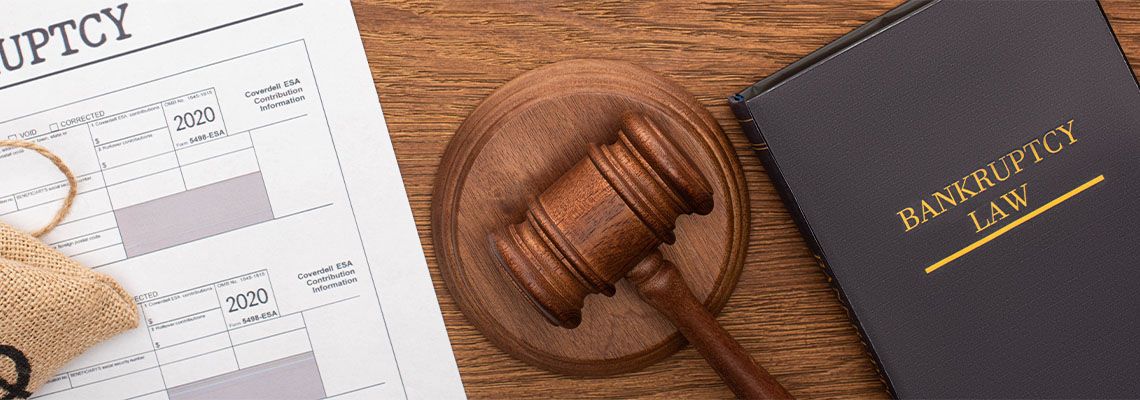
When Is Filing Bankruptcy a Good Option?
According to tabulations by the American Bankruptcy Institute (ABI), bankruptcy filings in 2022 in Louisiana increased nine percent, which was the highest rate nationwide. There was a total of 1,613 bankruptcies, with 24 percent of them Chapter 7 and 75 percent Chapter 13. The remaining one percent was for Chapter 11.
If you are unfamiliar with what these chapters mean, Chapter 13 bankruptcy is a plan for people who have some disposable income to reorganize their debts and pay them off at a reduced rate. Chapter 11 bankruptcy is similar, but it is used mainly by businesses. Chapter 7 is the liquidation option, which means, in rare occasions, some assets may be subject to sale to satisfy, or at least partially satisfy, your unsecured debt.
Bankruptcy is a scary word to many people, who envision it as the loss of everything, including their credit, and a personal stain that will follow them throughout their lives. These conceptions are far from the truth, however. In fact, bankruptcy provides for a fresh start and can, in fact, improve your credit in the long run by eliminating many stains on your credit report.
If you are overwhelmed by debt in or around Baton Rouge, Louisiana, contact us at the Hoke Law Firm. We will review your financials with you and recommend the best path for moving forward using bankruptcy, and then we will help you navigate the process to get your fresh start. We also proudly serve clients in or around Lafayette and New Orleans.
Assessing Your Current Financial Situation
Unexpected expenses—your car’s engine goes out, or you get sick and run up huge hospital debts—can really put you behind the proverbial eight ball when it comes to finances. In fact, statistics show that the greatest portion of people who file for bankruptcy do so because of medical expenses.
We’re not all accountants or perhaps even that good at managing our finances, but it’s advisable to keep track of all your debts and measure them against your income. In this age of steady inflation, keeping track of your finances is even more essential. Inflation also can be a factor in stressing out people’s ability to survive. News stories talk of people suddenly using credit cards to pay for essentials they used to purchase with cash.
A good sign that your finances are veering off where they should be is if you suddenly start getting calls from creditors about missed payments, or payments below the minimum required. If you find yourself juggling your monthly payments—one month this creditor, the next month another—you may need to weigh the possibility of getting a fresh start through bankruptcy protection.
Understand Your Bankruptcy Options
For individuals and families, the two major options for bankruptcy relief are known as Chapter 13 and Chapter 7. As mentioned above, Chapter 13 is the wage earner’s plan and Chapter 7 is the liquidation plan.
Chapter 13
Chapter 13 allows you to work out a repayment plan based on whatever income you have left over after paying the “essentials” for your life: food, shelter, transportation, medical, dental, education, and the like. The disposable income then is turned over to your assigned bankruptcy trustee each month, who will then divide it up among your creditors.
The beauty of Chapter 13 is that you can keep most of your current assets, but you do have to continue honoring any secured obligations you have—for instance, for your car and home. Filing for bankruptcy, however, can give you a window to try to renegotiate your secured debts.
Chapter 7
Chapter 7 is a method of quickly discharging your debts. In certain rare circumstances Chapter 7 may expose certain possessions to being sold to satisfy your unsecured debts, but there are exemptions that allow you to keep equity in your car and home, and also to retain personal furnishings and other possessions, tools of your trade, and so on. Also, qualified retirement savings and income, Social Security, and government benefits are not subject to bankruptcy seizure.
There is also a means test to qualify for Chapter 7. If your income for the size of your household is too high, then you must file Chapter 13. The beauty of Chapter 7 is that it normally can be over in a few months’ time, not years as in Chapter 13.
Some Debts Cannot Be Forgiven
By law, most student loans, spousal and child support payments, and most recently incurred, unpaid taxes cannot be discharged in bankruptcy. There are limited circumstances under which student loans may be dischargeable. An experienced bankruptcy attorney can discuss your options regarding your student loans.
Discover if Bankruptcy Is Right for You
If your debts are overwhelming you and you feel harassed by bill collectors calling and mailing you, it’s time to find out if bankruptcy is the option best suited to give you a fresh start in life. If you’re in Baton Rouge, Lafayette, or New Orleans, contact the Hoke Law Firm today. We will review your financial situation with you and advise you of the best option. We will also work closely with you to navigate the system to obtain a new lease on life.